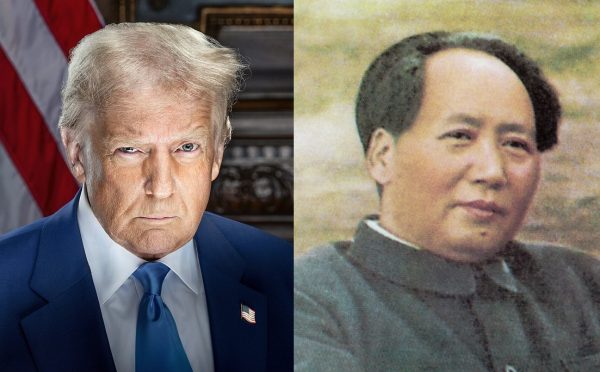CHAIRMAN MAO ;
I’ve never met Donald Trump nor had any dealings with him, and since I don’t watch television, I’d barely paid attention to his antics until his unexpectedly strong run for the White House began attracting heavy media coverage in 2015.
But some time ago I was privately meeting on other matters with one of Trump’s powerful and influential backers when Trump’s name happened to come up. Since I tend to be forthright and speak candidly about most things, I casually described him as an “ignorant buffoon.” I was hardly surprised that my interlocutor failed to reply to that provocative characterization, but I noticed the slightly embarrassed expression on his face and interpreted his silence as an admission that he quietly shared my own appraisal.
I strongly suspect that the worldwide tariff policies recently declared by Trump will soon cause more and more Americans, including erstwhile Trump supporters, to come to that same distressing conclusion.
Tariff policy is part of economics, and I hardly claim any great personal expertise in that discipline. Indeed, quite the contrary.
Back almost a dozen years ago, before my increasingly controversial writings rendered me far too radioactive for such things, I was invited to participate in a televised NYC debate on the economics of immigration policy, with one of my opponents being the prominent libertarian economist Bryan Caplan of George Mason University. The show was syndicated around the country and simulcast on NPR, and early on I boldly admitted my total ignorance of economics, declaring that not only had I never taken a class in that subject, but I had never even opened the pages of a single economics textbook.
However, I also suggested that much of economics constituted basic common sense and perhaps partly as a consequence of that approach, our side won the debate by the widest margin in the history of that series, with one of the opposing team members even shifting towards our position.
